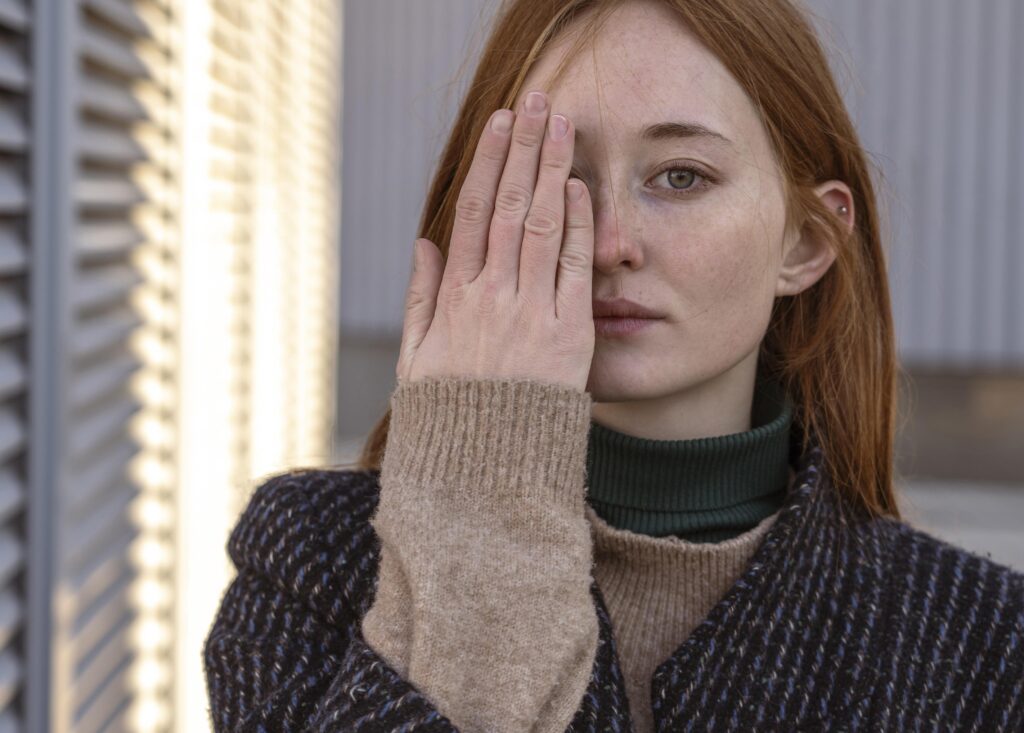Could That Twitching Eye Mean More Than Stress?

Almost everyone has experienced it: that annoying, pulsing twitch in your eyelid that comes and goes for no clear reason. You might be in the middle of a meeting, working at your laptop, or relaxing after a long day—then suddenly, your eye starts to flutter.
While it’s easy to brush it off as just a minor annoyance, eye twitching (also called myokymia) can tell us more than we think. At OptiCare Health, we often help patients figure out whether their symptoms are just temporary—or part of something deeper.
What Causes Eye Twitching?
In most cases, eyelid twitching is harmless and temporary. It’s often linked to common lifestyle factors that put extra strain on your eyes or nervous system.
The most frequent causes include:
-
Stress: Emotional and physical tension is a leading trigger. Twitching may show up during high-pressure periods, even if you feel “fine.”
-
Fatigue or lack of sleep: When your body is exhausted, your nerves can fire off small, involuntary movements—like twitching.
-
Excessive screen time: Staring at computers or phones for long stretches can tire out your eye muscles and disrupt your blink rate.
-
Caffeine and alcohol: Both substances affect your nervous system, which can heighten muscle excitability and trigger twitching.
-
Dry eyes or eye strain: If your eyes aren’t lubricated enough or are working overtime to focus, twitching may follow.
These types of twitches usually affect the lower eyelid and go away on their own within a few hours or days. But if they keep coming back—or don’t go away—it’s time to take a closer look.
When It’s Time to See an Eye Doctor
Persistent or unusual twitching isn’t something to ignore, especially if it comes with other symptoms. You should schedule an eye exam if your twitching:
-
Lasts more than a week
-
Affects both eyes at once
-
Comes with facial spasms or drooping
-
Causes the eyelid to fully close
-
Is paired with blurred vision or sensitivity to light
In rare cases, chronic twitching can be linked to nerve disorders like blepharospasm or hemifacial spasm. It can also signal dry eye syndrome or uncorrected vision issues that require professional care.
At OptiCare Health, we perform thorough eye evaluations to determine whether eye twitching is related to stress, fatigue, or something more. Our team can rule out serious conditions and provide personalized solutions.
What You Can Do to Prevent It
The good news is, most twitching can be managed with simple changes. Our optometrists often recommend:
-
Taking regular screen breaks using the 20-20-20 rule: every 20 minutes, look at something 20 feet away for 20 seconds
-
Limiting caffeine intake
-
Getting consistent, restful sleep
-
Using artificial tears if dry eyes are present
-
Wearing prescription computer glasses if you work long hours at a screen
We can also test your near vision to see if your eyes are straining more than they should—sometimes reading glasses or blue-light-filtering lenses can make a big difference in reducing fatigue and irritation.
Take Your Eye Health Seriously, Even for Small Symptoms
While twitching is rarely dangerous, it’s still a message from your body. Understanding what triggers it—and when to seek help—can keep your eyes healthy and your daily comfort intact.
At OptiCare Health, we’re here to guide you through every flicker and flutter. Our comprehensive exams, modern eyewear, and professional support help you take control of your vision, one blink at a time.
Book an appointment today if you’re experiencing persistent eye twitching. Let’s find out what’s behind it—and how to stop it for good.
